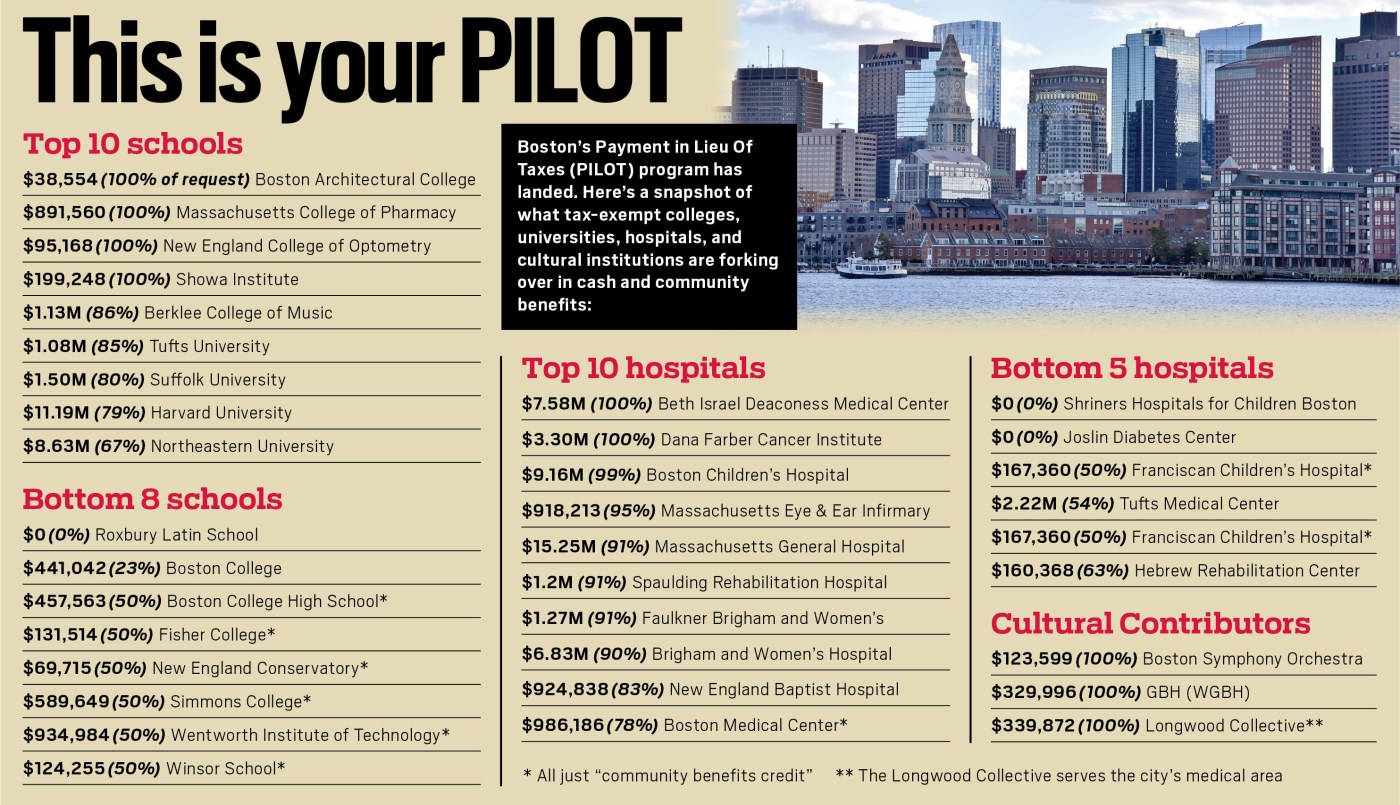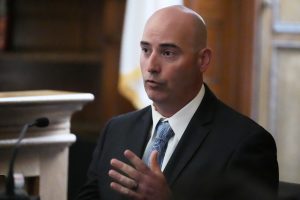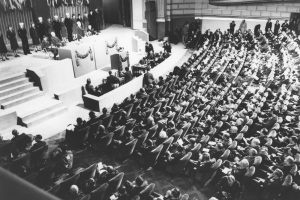
Boston’s tax-exempt nonprofit sector comes up $30M short of City Hall’s requested PILOT bill
New data released by the city reveals tax-exempt colleges and hospitals leaned heavily into community benefits credits but left $30 million in cash on the table for Boston’s PILOT program last year, as homeowners feel the strain of tax hikes.
The City of Boston unveiled fiscal year 2024 data for the Payment in Lieu of Tax Program that show participating educational, medical and cultural institutions collectively met 76% of their requested $128.79 million PILOT payment.
Of the $98.52 million total contribution, just $34.85 million was paid in cash, with the remaining amount taking the form of “community benefits,” or services, such as college scholarships, health and employment initiatives, that the 40 participating institutions report as providing to the city and its residents.
While homeowners were hit with double-digit tax hikes this past January, tax-exempt institutions that include the city’s biggest hospitals and colleges failed to pony up $30.2 million of their requested PILOT payment.
The lack of full compliance from many of the participating institutions has long been a source of contention. While advocates and some elected officials have argued that wealthy nonprofits are not paying their “fair share,” the nonprofit sector has pointed to the community benefits its institutions provide.
“Many of these institutions are sitting on billions in endowments while many of our neighborhoods struggle,” Enid Eckstein, co-chair of the PILOT Action Group, said at a City Council hearing last fall. “It is time the city and residents call upon these institutions to step up and provide a reliable source of revenue to the city. While these institutions welcome people from all over the globe, it is Boston taxpayers who bear the burden of providing the tax subsidy.”
The Wu administration is still in the process of negotiating with nine of the biggest nonprofits in Boston to ink long-term volunteer PILOT payments to help ease the tax burden on homeowners and businesses, the Herald has learned.
The City Council took up the issue last year and again this past February, when a hearing order to review the PILOT program was introduced by Councilors Ed Flynn and Julia Mejia.
“We just need to make a commitment that we’re going to push these institutions to pay their fair share,” Mejia said at the time. “I think it’s unreasonable for them to have a pass as they do.”
Under the program, private institutions with tax-exempt property in excess of $15 million, make voluntary payments amounting to roughly 25% of what they would have paid in real estate taxes. Payments are split between cash and community benefits credits.
The program has largely operated under the same guidelines since it was created about a dozen years ago. The Wu administration’s negotiations to update the program and its release of last year’s PILOT data comes as President Trump is threatening to strip Harvard’s tax-exempt status.
Harvard University, per city data, was at 79% PILOT compliance last year. While the Ivy League institution contributed roughly $4 million in cash and $7 million in community benefits credits, it was about $3 million short of its requested payment.
“Harvard engages with the City of Boston in a variety of important ways, including participating in the city’s PILOT voluntary program and delivering community programs to Boston residents, paying municipal taxes on the University’s non-exempt property, as well as leading meaningful initiatives and outreach,” Harvard spokesperson Melissa Monahan said in a statement.
“These local benefits, some of which have existed for decades, are an important extension of Harvard’s mission, serve thousands of local residents every year, and reflect years of collaboration between the university, its neighbors, and city partners.”
The new data show the lowest PILOT compliance last year was among educational institutions that include colleges, universities and college preparatory schools. Just four of the 20 participating schools met their full requested payment.
Compliance overall was 67% for the educational sector compared to 91% for medical and 100% for the three cultural institutions.
Boston College and Tufts Medical Center were at the bottom of their respective packs, at 23% and 54% compliance.
Boston College contributed $441,042 in cash of its requested $4.9 million payment, leaving $3.8 million on the table. BC said it doesn’t intend to settle its outstanding bill to the city, although city officials are hopeful that its longstanding stance on the PILOT program will change with next year’s leadership change.
“As a Catholic, non-profit educational institution, Boston College chooses not to participate in the voluntary PILOT program,” BC spokesman Jack Dunn said in a statement. “Instead, Boston College makes annual payments for municipal services to the City of Boston and the City of Newton for fire protection services under existing agreements established by the two municipalities.”
BC pays $441,000 to Boston and $134,000 to Newton under an agreement that has been in place since 1995, Dunn previously told the Herald.
“Boston College believes that the best way it can assist the City of Boston is through the more than $40 million in community benefits that we provide to the city and its residents each year through scholarships and financial aid, volunteer outreach, community grants, and the public and private funding we procure for Boston’s public and parochial schools,” Dunn said.
Related Articles
Battenfeld: Trump supporter super PAC donation more ammo for Wu
Boston working group recommends health care reuse of Dorchester’s shuttered Carney Hospital site
Boston Water and Sewer Commission parts ways with its $200K HR director amid civil fraud allegations
Trump administration’s visit to Boston to probe college antisemitism is off
Don’t diss Tania, Dianne Wilkerson warns candidates vying to replace disgraced Boston city councilor
Tufts Medical Center said it plans to keep participating in the PILOT program, but in a reduced capacity due to its precarious financial situation. The hospital contributed $150,000 in cash and about $2 million in community benefits, falling $1.9 million short of its $4.1 million requested payment, city data show.
“Tufts Medicine has a long-standing commitment to supporting the health and well-being of Boston’s communities, including through contributions to the City’s PILOT program,” Tufts spokesperson Jeremy Lechan said in a statement. “As we continue to make steady progress on our financial recovery, we have made adjustments to our contributions to ensure we can maintain our participation in the program, albeit at a reduced level.
“We remain deeply committed to Boston’s neighborhoods and supporting local organizations and initiatives in meaningful ways.”


